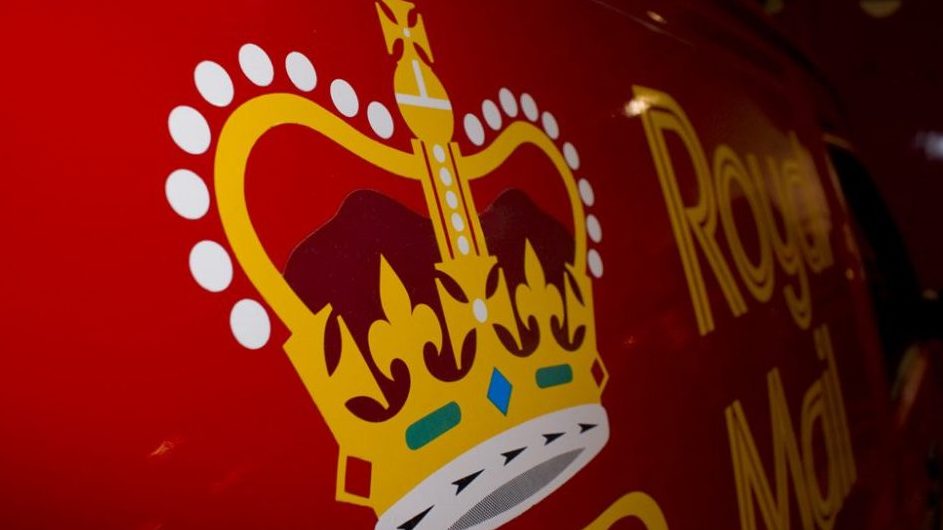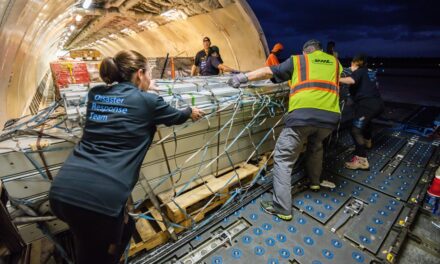
Royal Mail to cut 700 jobs to “simplify and streamline operations”

Royal Mail Group has provided further information on its transformation programme in the UK and updating on Group trading for the third quarter, October to December 2021, and the nine months ended December 2021.
The company stated: “We are engaging with our unions on the proposals, which we expect will lead to a reduction of around 700 managers and deliver an annualised benefit of around £40 million, with around £30 million in FY 2022-23. To deliver this programme, we expect to incur a restructuring charge of around £70 million in Q4 2021-22, subject to consultation. The proposed changes in management structure are subject to statutory consultation with Unite/ CMA, and additionally we will work with the CWU to ensure that the impact of any proposals remains in line with our existing agreements.”
Financial Highlights
- Performance in Q3 in line with expectations;
- Royal Mail:
- Confident there has been a structural shift in parcel volumes since the start of the COVID-19 pandemic;
- 439 million parcels handled during the quarter;
- Q3 domestic parcel3 revenue grew by 43.9% Q3 2019-20, and declined by 4.9% year on year;
- Q3 domestic parcel3 volumes grew by 33% vs. Q3 2019-20, and declined by 7% year on year; at least maintaining our market share;
- Proud to continue to support the Government’s COVID-19 testing effort with increased volumes during the quarter; test kits accounted for around a mid-single digit % of total parcel volume in the first 9 months;
- Absence peaked at c.15,000 in early January due to Omicron;
- Service levels in some areas of the country and delivery of Pathway to Change efficiencies impacted;
- Quality of service: providing targeted support in those areas most impacted: number of local delivery offices listed on our service update page reduced from 77 to 10 as of yesterday;
- Pathway to Change: delivered £35 million of benefits to the end of December; expect to achieve targeted exit run rate to deliver at least £90 million in FY 2022-23; FY 2021-22 expected benefits of £55 to 80 million, dependent on speed of recovery from Omicron;
- As part of our transformation programme, today entering into formal consultation on a reorganisation to streamline operational management to improve focus on performance at a local level;
- Expected to deliver around £40 million annualised benefit, with around £70 million charge to be taken in Q4 2021-22, subject to consultation;
- Trading in line with previous guidance of around £500 million adjusted operating profit for FY 2021-22. Including restructuring charge as outlined above, guidance is now around £430 million adjusted operating profit.
- Confident there has been a structural shift in parcel volumes since the start of the COVID-19 pandemic;
- GLS:
- Performing well: Q3 revenue growth of 7% in Euros1, 35.2% in Sterling, vs. Q3 2019-20, and 10.7% growth in Euros1, 4.5% in Sterling, year on year;
- Despite upward pressure on costs, full year revenue guidance now around 9% growth in Euro terms, c. 4% in Sterling (previously low single digit %), and operating profit margin of c.8%.
Keith Williams, Chair, commented: “We delivered a solid performance over the Christmas period in particularly challenging circumstances operationally. I’d like to thank all of our people for their dedication over the period.”
“We expected some decline in parcel volumes given most retail stores were open during the period, unlike last year. However, the trend towards customers wanting more parcels remains, and responding to that change efficiently is key. Our domestic parcels business in the UK has seen demand increase by around a third over two years, as has our GLS business across its markets.”
“The past few months have demonstrated that the challenge for Royal Mail is to improve both quality and efficiency. Looking forwards, the delivery of our transformation and modernisation plans remain incredibly important in light of the fast-paced change we are seeing and ongoing inflationary pressures. Whilst GLS will also face inflationary pressures, our focus will be on continuing to leverage its distinctive and proven business model to exploit growth opportunities in a profitable way, whilst building on the progress made this year in previously underperforming markets.”
Simon Thompson, CEO Royal Mail, commented: “With the rise of Omicron, absence has been around twice pre-COVID levels, with around 15,000 staff off sick or isolating in early January. Thankfully, this is now improving. We are resolutely focussed on addressing these issues which have affected our service in some parts of the country. Year to date we have spent more than £340 million on overtime, additional temporary staffing and sick pay, as well as providing targeted support for the offices most impacted. We have taken steps to maintain as comprehensive a service as possible, whilst keeping our people and customers safe. I’d like to thank all our people who have worked incredibly hard, as they have done throughout the pandemic. I would also thank customers for their patience in those areas where we have faced operational challenges and increased absence as we focus on restoring our usual levels of service everywhere.”
“Higher absence has also been a headwind to delivering our productivity targets, but our Q3 performance gives us confidence in the delivery of adjusted operating profit for Royal Mail, before the cost of the reorganisation announced today, in line with previous guidance at around £500 million.”
“We have today entered into formal consultation on a management reorganisation to further streamline our operations and, at the same time, improve focus on local performance. We are committed to conducting the process sensitively, working closely with our people and their representatives. We have a track record of delivering change through natural turnover, redeployment and voluntary redundancy, wherever possible. Our full year outlook has been revised to take account of the costs of this reorganisation.”
Martin Seidenberg, CEO GLS, commented: “GLS continues to deliver good volume and revenue growth, both year on year and against 2019. Revenue growth was achieved in almost all markets, with in particular continued strong performance in our Eastern European businesses. We continue to manage our operations successfully despite the impact of the Omicron wave which is spreading across Europe. We are seeing upward pressure on costs driven by increasing inflation rates in the countries where we operate, and have recently implemented price increases in response.”
“As previously announced, the acquisition of Rosenau Transport in Canada was completed on 1 December 2021 and Q3 includes the first revenue contribution from this business. We have commenced the programme to realise synergies with our pre-existing GLS Canada business and are confident that our plan will be delivered.”
“Given our good Q3 performance, whilst we expect the rate of growth to soften in Q4, we now expect full year revenue growth of around 9% in Euro terms (around 4% in Sterling) and an operating profit margin of c.8%. This equates to an operating profit of c. €400 million.”












